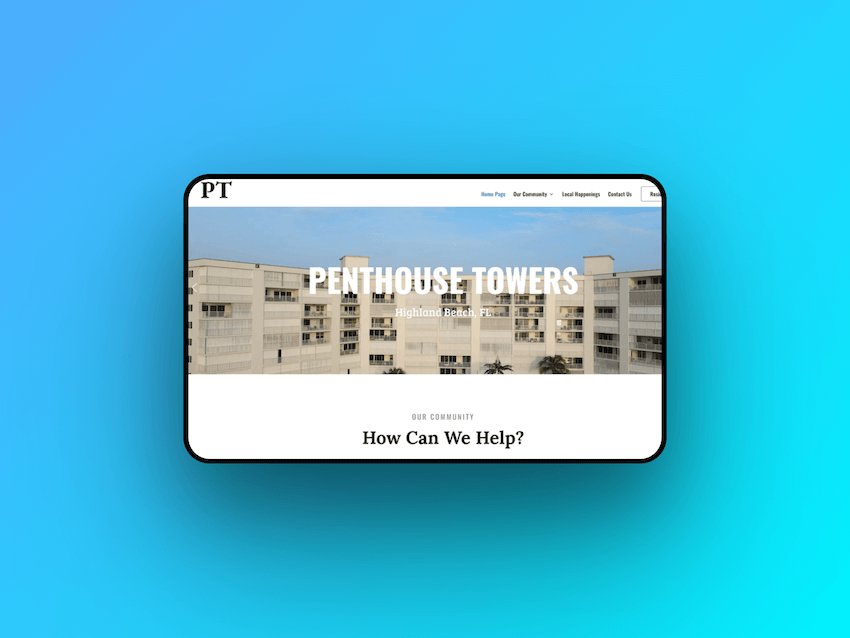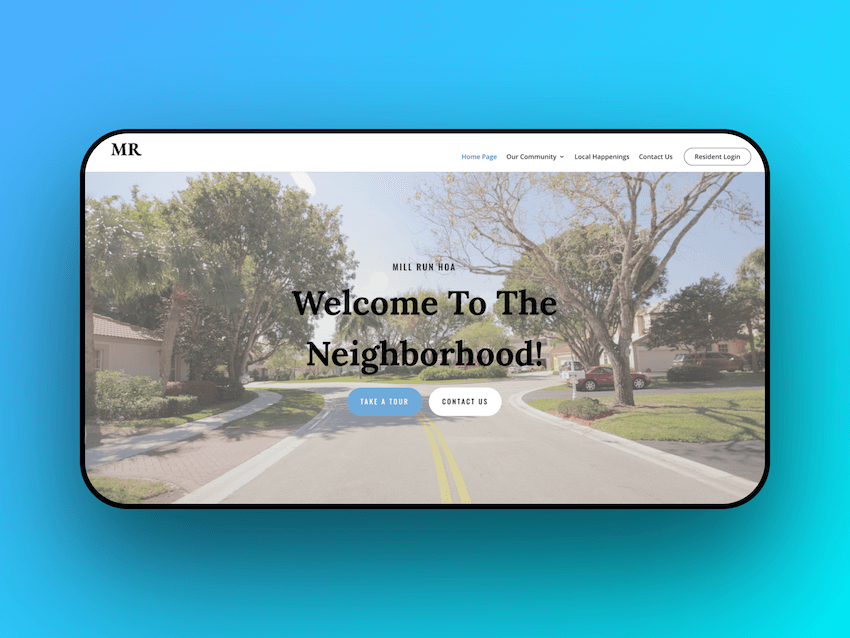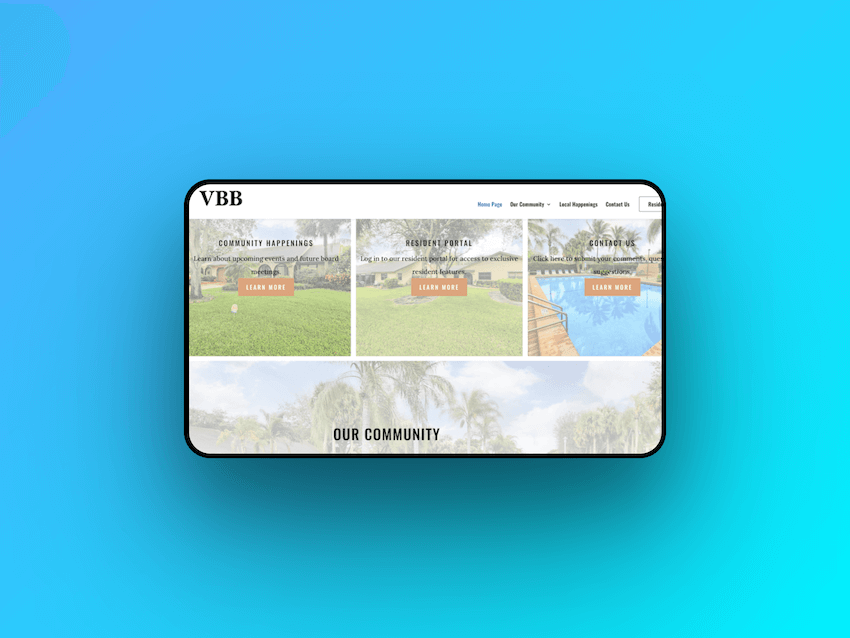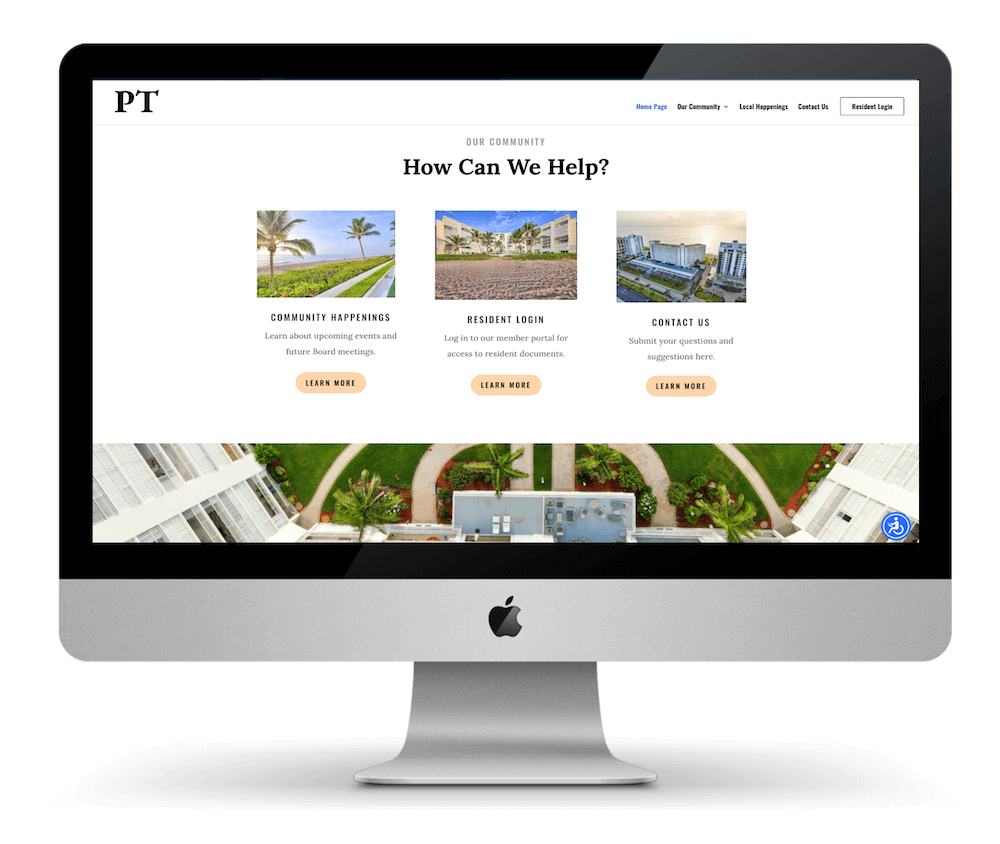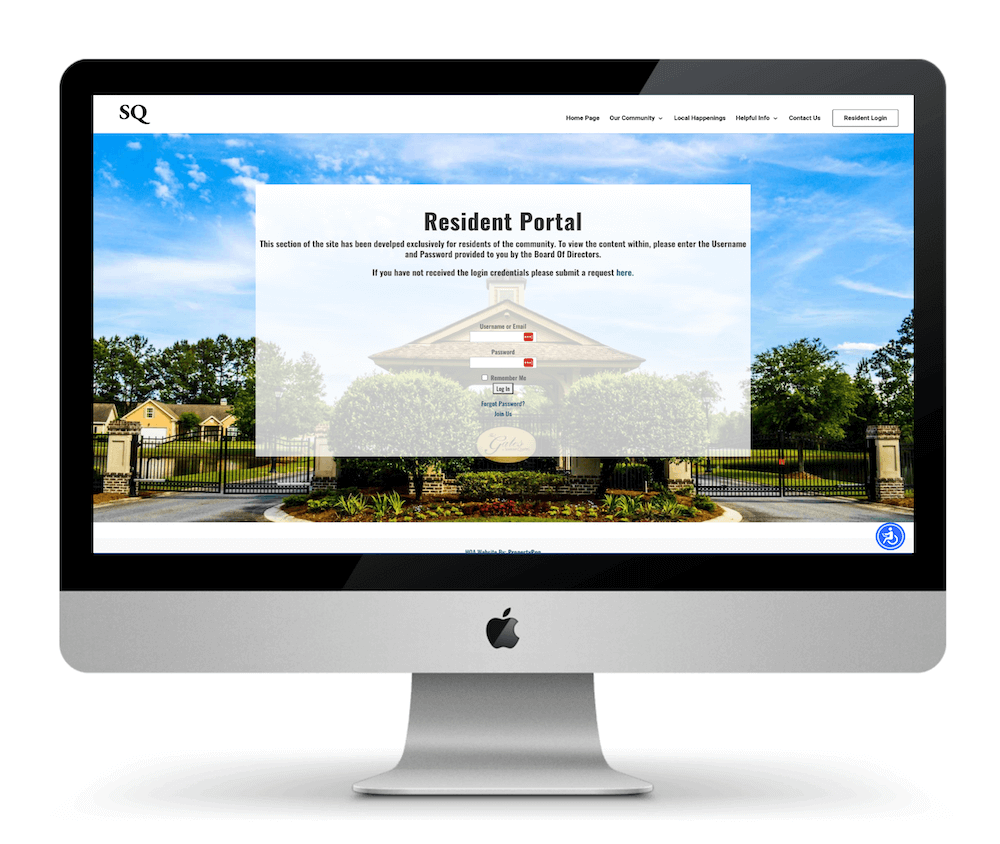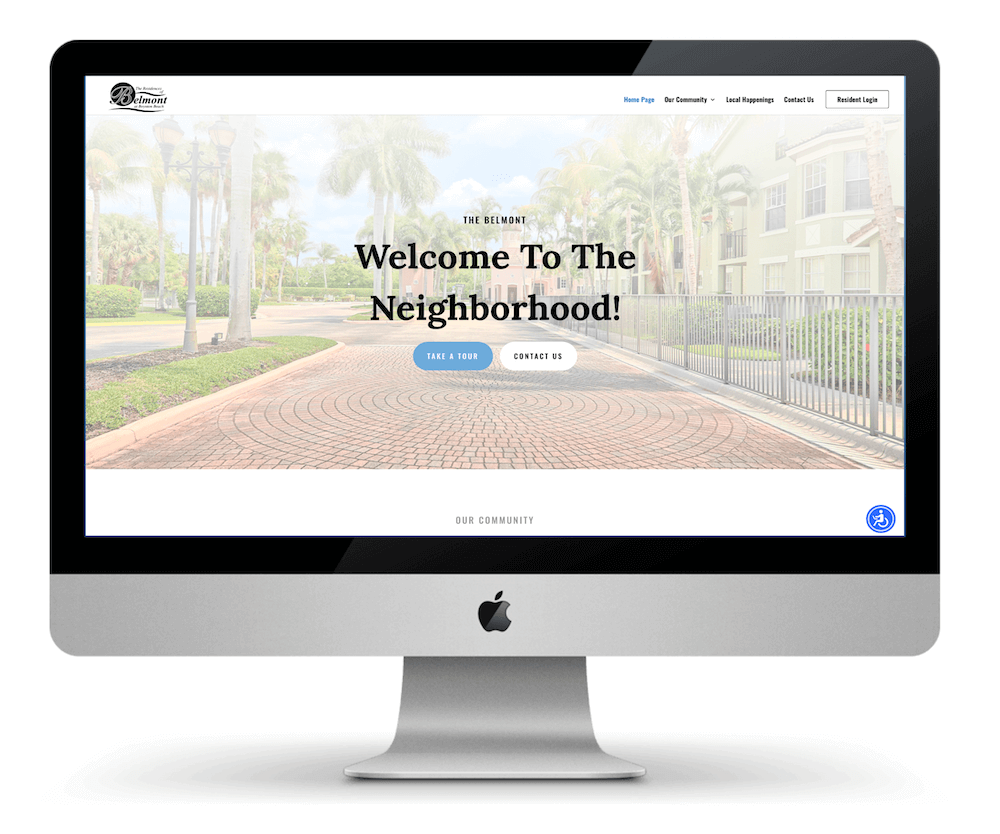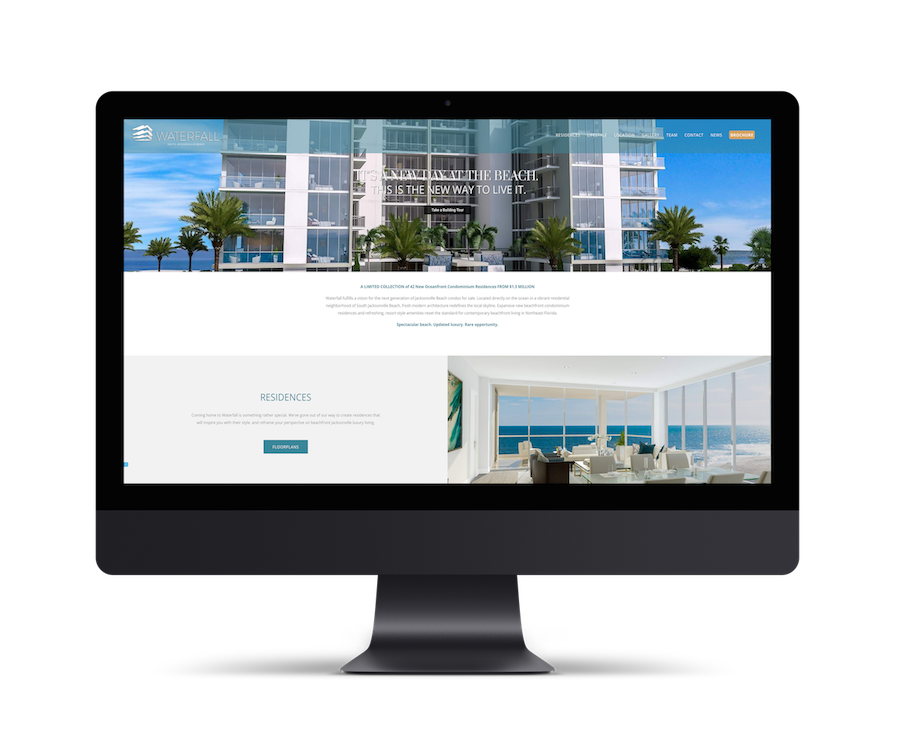Condo Association Websites: The Ultimate Guide To Creating One
Condo Association Websites:
The Ultimate Guide and How To Create One For Your Community
Table Of Contents
Introduction
Chapter 1:
Condo Association Websites 101
Chapter 2:
FAQs
Chapter 3:
The Must-Have Features Of Condo Websites
Chapter 4:
Best Condo Association Websites Examples
Chapter 5:
Finding A Condo Website Provider
Chapter 6:
Legal Requirements
(Florida Condo Association Requirements)

Introduction
It’s 2023 and websites are everywhere.
Your condo association should not be an exception.
Especially with the recent passing of Florida State House Bill 1237, having an association website to represent your Condominium and provide residents with access digital copies of all official records and information 24/7.
In addition to showcasing your condo buildings amenities, selling points and acting as a marketing piece to help improve the condo’s value and relevance, your condo association website is also required to provide specific documents, forms, financials and other files to its homeowners via a private ‘members-only’ section of the website.
While a condo website is now a legally required asset every building needs to have and could be viewed as a pain to implement for your association, overall, setting up a legally compliant and beautifully crafted website for your association will ultimately be a huge benefit to your community.
Resulting in a more modern, digitally relevant community.
With increased engagement from residents and ease of access to important documents, a condominium association website, once built, will be an efficient asset to your building. Both from a financial and time time-saving perspective.
This article is intended to act as a step-by-step guide helping your board, residents and management firm (if applicable) navigate every element that should be considered.
There are many moving pieces that need to be considered when building a website for your condo.
In a nutshell, this (ultimate) guide is intended to provide you with a much clearer picture of where to start, what features your website needs, who should build it, and how to make sure it is legally compliant with all state laws.
Let’s get started.
Condo Association Websites 101:
A website developed for your condo association should be kept mobile-friendly, maintained and kept up to date, host-specific documents, have a members-only section and more.
Whether your condo building already has a website or you need a new one created, there are certain basic elements you need to be aware of and keep in mind when making sure your site meets both legal and user-friendly requirements.
First thing first, if your condo building is in Florida and has over 150 units, as of January 1st, 2019, your condo association is legally required to host a publicly accessible website that also has a private, resident-only section.
House Bill 1237 (HB 1237) was passed by FL Governor Rick Scott and acts as an amendment to Florida Statute 718 on Condominiums and is currently in effect.
We’ll dive into the legal requirements in a later section, but from a high-level, it is important to understand that this law has been approved, passed and is currently in effect for all Florida condominiums with 150+ units.
In addition to a ‘gated’ members-only section, your condo website has the potential to act as a marketing asset for the building.
By including visuals and marketing copy on the website you can effectively promote your buildings ‘selling points’ while also remaining legally compliant with the new house bill.
Beautiful photos of your buildings gym, lounge rooms, front lobby, pool area, spa area and any other areas that prospective homeowners would be interested to know of, can help keep occupancy high.
Here are some examples of the best condo association websites that do a good job of marketing the building:
Frequently Asked Questions About Condo Websites:
Does my condo need a website?
As of January 1st, 2019 if your condominium is located in Florida and has 150 units or more, your legal required to have a public facing Condo website that also has a secure, Members Only section with unique logins for residents.
When do we need a website by?
While House Bill 1237 was published in 2017, the due date to have your condo association website up and compliant was January 1st, 2019.
What are the website’s requirements?
Your condo website must be publicly accessible, but also contain a private, Members Only section with unique logins generated as residents request. This Members only section needs to include important documents that are not accessible to the general public but gated behind the Members Only sections.
Who should build our association’s website?
While a neighbor or friend may be a ‘website maker’, it’s important to take into consideration the special requirements surrounding a condo website in order to meet compliance standards with new legal statutes. Therefore, we recommend working with a Web Development vendor who is experienced with the needs of Condo websites, the features that should be included and the continued maintenance they will require. Finding and partnering with a vendor who specializes in Condo websites is even better.
How much should our condo’s website cost to build and maintain?
Pricing for websites can vary and ranges can fall between $3,000 – $50,000 depending on the provider you work with and the features you want to be included. Other providers might charge a smaller initial setup fee, and then ongoing monthly maintenance fees to host the website and take care of all updates required. Check with each vendor to make sure you clearly understand costs.
Finding A Condo or HOA Website Provider
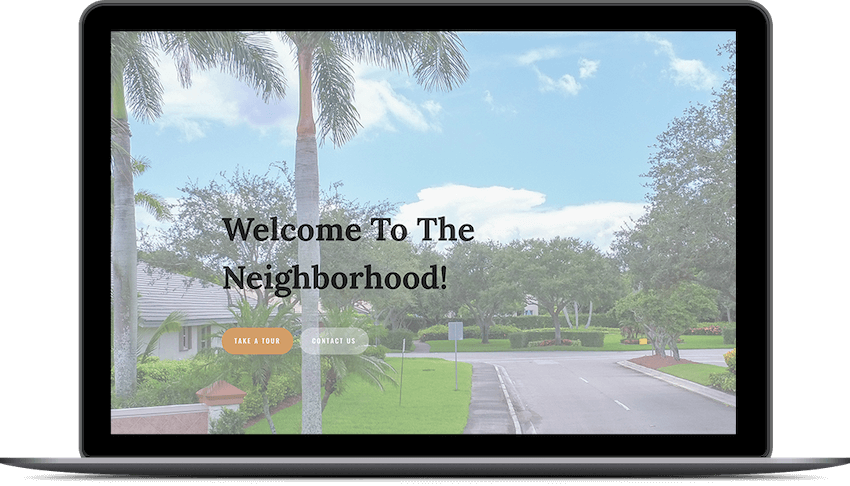
There are many website companies out there.
And even more brothers and uncles and neighbors who “do websites”.
However, when considering an HOA Website vendor for your condo association, it’s important to remember the technical aspects of the site that should be handled by professionals who are also intimately aware of the Condo and community association industry.
That is up-to-date with the legal requirements and understands the relationships between the BOD, the residents, and the condo association management firm.
Finding a provider who works exclusively with condo associations should make the website development process go much smoother.
When searching for the right partner, ask them about their experience with Condominiums.
- Have they built websites for condos before?
- Are they knowledgeable about the requirements for compliance?
- Do they provide custom photography?
- Do they provide ongoing support and website maintenance?
The Must-Have Features Of Condo Association Websites
Now that we have a general idea of the reason for a condo association website and what it should include, let’s dive into the important elements needed for a complete website for your condo building.
Domain Name
A domain name is the portion someone will type into a web browser to arrive at your website.
It is the “www.MyCondoWebsite.com” portion of your website and essentially acts as the name of your condo’s website.
Domain names can be purchased through a Domain Registrar.
They generally run between $10-$20 annually and need to be renewed every year.
The domain name is the first thing needed when preparing to build your association’s website.
If you are not familiar with domain name purchasing, ask your web provider if they will help you with this part.
Here is a list of several domain name brokers you can use to purchase yours:
- Networksolutions.com
- Name.com
- Enom.com
- Godaddy.com
- Namecheap.com
- Domainnames.com
- Tucows.com
- Ionos
- Register.com
Hosting

Now that you have purchased a domain name, the next step is setting up a hosting server so you can ‘place’ your website on the internet. What exactly is hosting?
Web hosting is where your website lives, it is where you place the website’s files, code, and database so they are accessible and reachable through the internet.
Think of it as a phone number, it’s not enough to just have a phone number assigned to you, you need a carrier (the hosting) so you can make and receive phone calls.
Hosting is a very important part of managing a website so it is important that you select a provider who will offer good server loading times, regular updates, ongoing maintenance, storage space, security, and flexibility to handle all the traffic your site will receive.
Make sure to ask your hosting provider for the details about the server you will be placing your website files.
Communication Tools
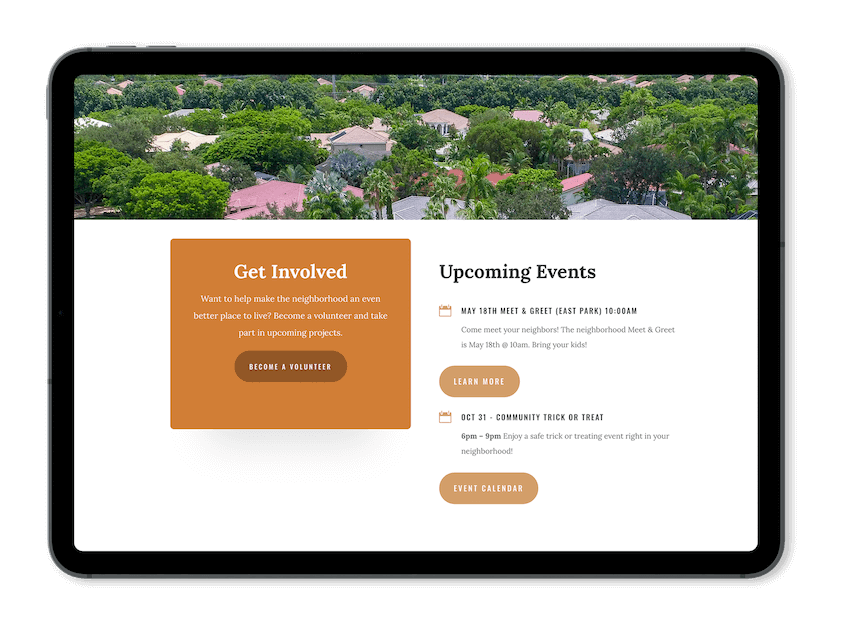
You purchased a domain name, you’ve set up your website with a hosting provider, and your association’s website is off to the races.
The next step is making sure to include features within the website for communication.
There are various types of communication that may be required for your condo’s website.
From publicly visible submission forms to contact the building’s front desk, the association’s management firm, a list of active board members, certain vendors, etc.
Contact forms allow residents and prospective tenants to get in touch with different parties.
Within the private portal and members-only section of the website, different communication may be desired.
The ability to contact other unit owners via a members directory, the list of board members and their email addresses, a community bulletin board, MLS listings may be a feature of your condo’s website, and being able to reach out to the listing party may be something your residents find valuable.
The internet is intended to make communication quicker and easier, and your condo’s website should offer several different means of getting in touch with the right party.
Secure Login Portal

As a requirement for all Florida condominiums with 150+ units, the condo’s website must contain a ‘gated’ secure login portal, accessible via custom login credentials (username and password).
Upon logging in, unit owners can access a private portion of the website.
The secure portal needs to contain documents and information that can be available to all homeowners 24/7.
The required documents, as dictated by HB 1237 are:
- Declaration of condominium, including amendments
- Bylaws and revisions of the bylaws
- Articles of incorporation and addendum’s
- Current rules of the association
- Annual budget and proposed budgets
- Financial report and proposed financial reports
- Management agreements, leases, or contracts binding the association
- Board member’s and directors’ certifications
- All contracts or documents regarding possible conflict of interest
- Notices of any unit owner or board meeting with the agenda posted 14 days before the meeting
- Any documents to be considered during a unit owner or board meeting or listed on the agenda 7 days before the meeting
Design Elements
Now that the legally compliant aspects have been included, a complete condo association website will also consider design elements when developing its site.
100% Responsive (Mobile Friendly)

Starting with mobile responsiveness, is a must in today’s ‘mobile-first’ world.
Being able to access your website from any device while on the go will help improve the website’s adoption rate and ease of use.
Navigation Menu
Easy navigation is very important for allowing users to intuitively navigate to the different pages of your site.
If the navigation of the site is not intuitive, people are much quicker to leave the website.
Take stock of your condo website’s most commonly visited pages and make sure to include links to these in the footer.
This way you provide multiple methods for site visitors to reach these commonly viewed pages.
Custom Photography
A photo gallery highlighting your building’s unique aspects is a great way to differentiate your building from the other condominiums in your area.
Photos of the amenities, the front lobby, and the exterior of the building, all boost the visual appeal of your condo’s website.
For extra points, you can add drone photos that take shots from different heights and angles so you can see your building from a ‘birds-eye-view’.
“I have to tell you, I’ve lived here for over 14 years…I’ve never seen the building from some of these angles. Simply amazing.”


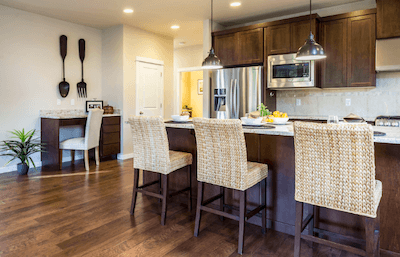
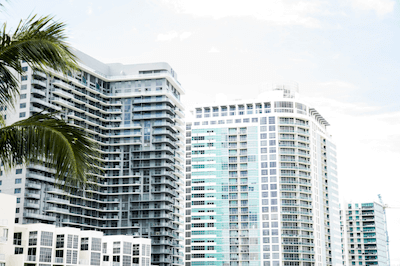
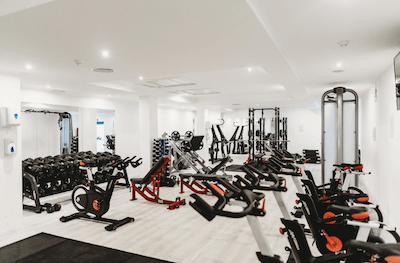
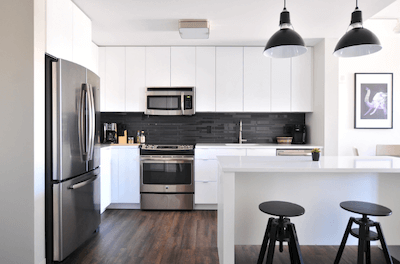
Social Media Integration
An optional component many condo buildings have recently begun to incorporate is the addition of the building’s Social Media links.
The profile links to each of their social networks can act as an additional way to show off the building, invite further engagement, and peak interest from prospective buyers.
A great place to include outbound links to your social networks is in the footer of your site.
Usually, a best practice is to line them all up in a row so they are consolidated and easily accessible to anyone looking for them.
User-Friendly Footer
Your condominium associations site footer should be selective when determining what data to include.
Since the website footer is a global element, meaning it lives on every page of the website, only the most relevant information should fit in this real estate.
Association Contact Details
Arguably one of the most important details of the site, your condo’s contact details should be conspicuous and easy to find.
Since the content within your footer is site-wide, including your condo’s address, phone number, email address, etc. is a perfect spot.
Security Measures
Security is one of the most important factors to consider when reviewing potential condo website providers to partner with. While websites for other industries may not require lengthy security precautions, your condos website should make sure it’s doing all it can to stay secure.
The condo data is stored on your website and those are not documents that are meant to be visible to everyone.
3 important security measures your condos website should have:
SSL Certificates
SSL stands for Secure Socket Layer. An SSL Certificate validates your website’s identity and encrypts the information visitors send to, or receive from, your site. This keeps thieves from spying on any exchange between you and your website.
Malware Scanning
Malware is software that is specifically designed to disrupt, damage, or gain unauthorized access to a computer system. Depending on your Website Security plan, your malware scan frequency can vary from monthly to daily.
If malware is found on your site, make sure your web provider is prepared to fix it immediately.
Routine Website Backups
While preventative measures are a must in website security, sometimes, things still happen. It doesn’t mean it’s a hacker or virus attack, it could be something as simple as a website admin accidentally deleting data from the site.
With routine backups of your website, you can easily (and without stress and panic) revert back to the latest site backup and continue right where you left off. Make sure to ask if your condos web provider includes routine backups with your site management plan.
Extra Credit
Embedded MLS Listings
Having a section of the site that lists condo units that are available for sale or rent.
Real Estate Agent ‘Guide To The Neighborhood’
A downloadable PDF guide that can be shared with real estate agents that have listings with your building. Including statistics about the building to help inform any prospective buyers.
Multi-Layer Permissions
Tiered permissions can be useful for associations that want their websites to have more complex permission settings. You can have a login for homeowners, board members, and website administrators.
CAM Dues / Online Payments
Including a payment collection tool, that allows residents to pay CAM fees directly on the website.
Best Condo Association Websites
We’ve compiled a list of some great-looking (and functioning) Condo association websites out there today.
Grading was based on meeting legal requirements, design and aesthetics, and overall ease of use.
Some of the criteria to determine a solid Condo Association website include:
- Designed with SEO best practices
- Serves as a resource for both residents and prospective buyers
- Has IDX/MLS search built-in
- Encourages engagement and interaction
- Contains Contact Forms & Service Request Docs
- Positions the condo in a positive and appealing manner
- Features high-quality images of the building
- Beautiful design, layout, and an easy-to-navigate menu of options.
BOD Approval & Homeowner Acceptance
Getting the board of directors to agree on the right partner to build your condo’s website or even agreeing on the style of the website can sometimes be tricky.
Asking important questions at the next board meeting can help shed some light on what areas you’re getting stuck on.
Questions to ask at the next meeting:
- What should our domain name be?
- What is our budget for the website?
- How soon do we plan to have the website live?
- Who will purchase the domain name?
- Who will maintain and update the website?
- Who will upload new files?
- Do we want to include custom photographs?
- Does the web vendor understand Condo laws?
Legal Requirements
(Florida Condo Association Website Requirements)
The full legal requirements for a Florida condominium website can be found on the State of Florida website by clicking here.
Some of the bullet point requirements include:
By January 1, 2019, an association managing a condominium with 150 or more units which do not contain timeshare units shall post digital copies of the documents specified in subparagraph 2 on its website.
The association’s website must be accessible through the Internet.
The association’s website must contain a subpage, web portal, or other protected electronic location that is inaccessible to the general public.
Upon a unit owner’s written request, the association must provide the unit owner with a username and password and access to the protected sections of the association’s website.
A current copy of the following documents must be posted in digital format on the association’s website:
- The Declaration of Condominium
- Bylaws
- The Article of Incorporation
- Addendum’s to the Articles of Incorporation
- Rules of the Condominium Association
- Management agreements, leases or binding contracts to the association
- The Annual and proposed budgets
- The Financial and proposed financial reports
- Certification of the Directors on the board
- Contracts and/or documents regarding possible conflict of interest
- Contracts and/or transactions between the Condo Association and any entity which a Director is financially interested
- Notices of Board Meetings and agenda
- Notices of Unit Owner Meetings and agenda
- Posting of any and all documents to be considered during the meeting
- Summaries of bids for materials, equipment, or services which exceed $500 must be maintained on the website for 1 year. In lieu of summaries, complete copies of the bids may be posted.
Conclusion
Make sure when selecting a website provider, they are familiar with Florida Statute 718 and the recent amendment regarding condo website requirements.
If they are not, chances are you may want to search for another provider.
Your condo association website is one of the most powerful tools for your association to leverage.
Just remember that it isn’t something you “set and forget.”
After choosing a domain name, perfecting the design, and providing resident login credentials, you’ll need to update your site regularly in order to stay organized and compliant.
This guide is a starting point: if you really want your condo website site to function as an efficient tool for your condo association, you need to invest the time to find a provider who can supply a low-maintenance, easy-to-navigate website.
New tools and technologies are always being developed.
Working with a partner who will take the time to stay up to date with the latest announcements and legal requirements can help you stay on the cutting edge.
Thanks for checking out our Ultimate Guide To Creating A Condo Association Website.
“There are only so many ways you can take the same information and make it ‘prettier.’ So knock it off. Stop taking the easy way out and reproducing what your competition is doing, and instead do what they’re NOT. Be original.”
-National
Association of REALTORS®
NEW: See Our List of The Top Condo Websites of 2024: Click Here
Boost Community Value
Find out how an Association Website can improve your community value and increase homeowner satisfaction.
PropertyPop
PropertyPop develops modern, professional HOA and Condo Websites that represent your Association, provide easier communication tools for the community and enables owners with quick access to secure Resident Portals, 24/7/365.
© Copyright 2024 PropertyPop Community Websites Company Inc.

